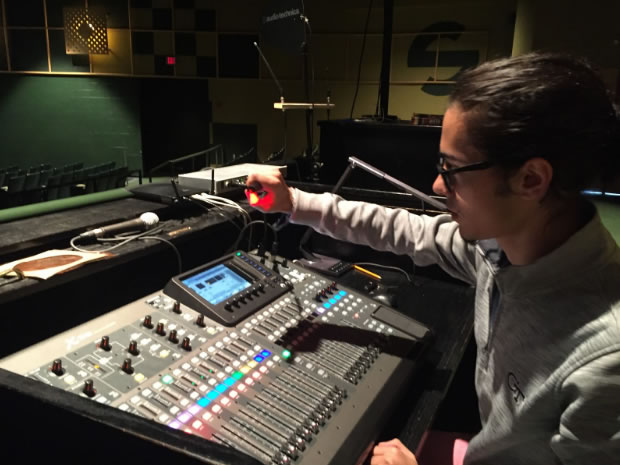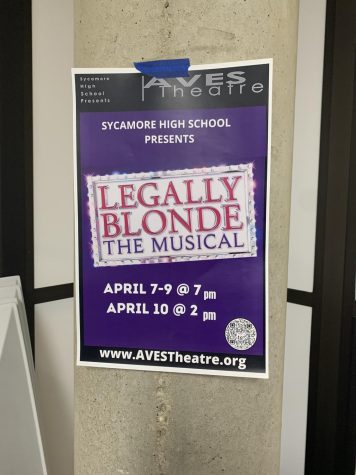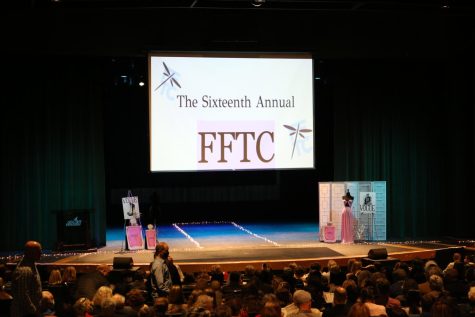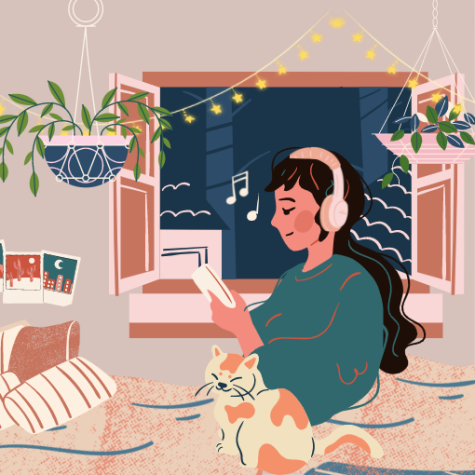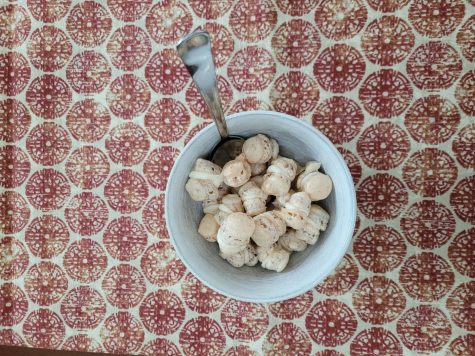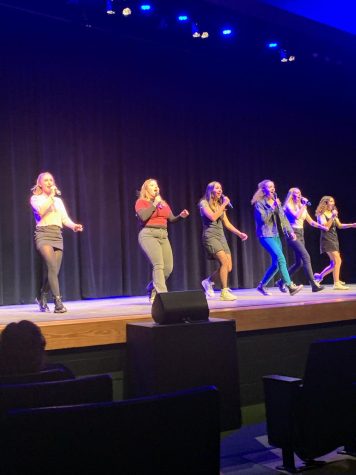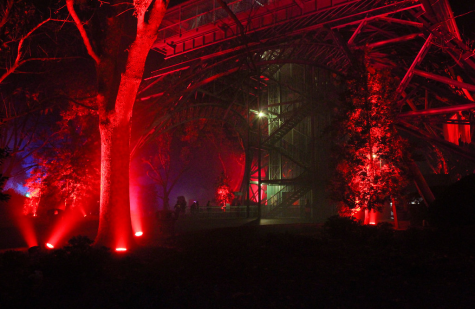Sounding it out
Aves theater sound crew illuminates the stage
TURN IT UP. Each show has a dedicated crew that works hours to perfect the performance on stage. Senior Nitin Pauletti works behind the scenes to coordinate music, microphones, and the orchestra.“You are in charge of your own part, and if you didn’t do it correctly, a lot of things could go wrong. I really like that aspect of importance,” Pauletti said.
Behind every performance lies a dedicated technical crew. These students build sets, do makeup, fix lighting and adjust sound. Nitin Pauletti, 12 is entering his final year of technical theater with Aves Theatre.
What is tech theatre?
Tech theatre can be broken up into three different departments. During the show, there are three crew roles: we have people backstage who are involved with all the set changes and using the fly system to move the curtains, and then you have the light crew which presses buttons to coordinate the various lights during the show. The sound crew, which I’m part of, does sound effects and recorded music for plays, and it’s a lot more intense with the pit and sound cues.
What got you interested in tech theatre?
I started in eighth grade with sound, and I didn’t really have any interest in it at first. All my friends were part of theater, and they told me to try it out. I had a fear of going in front of people, so I wanted to do the technical side. It was just cool to get a behind-the-scenes look at things and to know that you played a part in the production. In high school, they needed more people in sound, so I joined and really liked it. I’m a musical person, so my first show, I mixed the pit and the orchestra and that started off my high school career in sound.
How did you learn to use all the equipment?
Most of it was self taught. The seniors that were there my freshman and sophomore years helped me a lot, and I learned from watching them do things or from them directly helping me do certain things. Steve, who is the sound team coordinator, also taught me a lot. A lot of it was trial and error and figuring out what things do. It was combination of being taught things and learning from my own.
What kind of projects do you work on? What is your favorite performance you have worked on?
My favorite show was either “Shrek” or “Les Miserables.” The cast and crew got along really well during the shows, and the group numbers were some of my favorites. Also the variety of what I had to do was more fun. The Variety Show my sophomore year was fun because we had a band that flipped out on stage, and I was in charge of gathering and training the techs and working with the script. Sometimes we help with choir performances. and the choir has their Cabaret in the spring – that’s an audition-based performance -, and that’s always fun because it’s a more formal setting. It is cool to see what they are working on.
Do you apply your skills to other theatres/production or to other fields in general?
When I see other performances, like I saw “Wicked” the other weekend, I’m sitting there in the audience as an audience member but I’m still back at the board trying to imagine what the sound person is doing. Another thing that I think I learned is that in sound, there are a lot of things that can go wrong at any time, and when they do, it’s terrible. I have learned how to take situations, whether they are good or bad, and find a solution as quickly as I can because that’s what I have to do. I used to be a perfectionist, and sound has taught me to not always be a perfectionist because there are so many things that are out of your control like random power outages. You just have to do with what you have got.
How much time have you committed to this project?
It’s a lot of time commitment, but it’s not spread out. It’s extremely concentrated during the last two weeks before the show when the crew has to be there. I’m usually out after school until 10:30 or 11:00 p.m. just fixing whatever needs to be fixed. Last year, we got a bunch of new equipment, so I spent at least three weeks setting it up and configuring it and all that jazz, which took part of my school day as well.
What is you favorite part of the whole process?
I feel that my favorite part of the process is setting up and then the last show night. The first show night you are too nervous to notice anything around you and then the second show night you have already seen everything, but the third show night we have to make this count because it’s the end. It is always more fun because there is just a lot more energy. And setting up is fun because even though I get frustrated at times with why things aren’t working, I always work with other people and find the solution.
How can students get involved in theatre?
We have set building in the auditorium after school. All you have to do is say you want to help; you don’t have to take a class.

